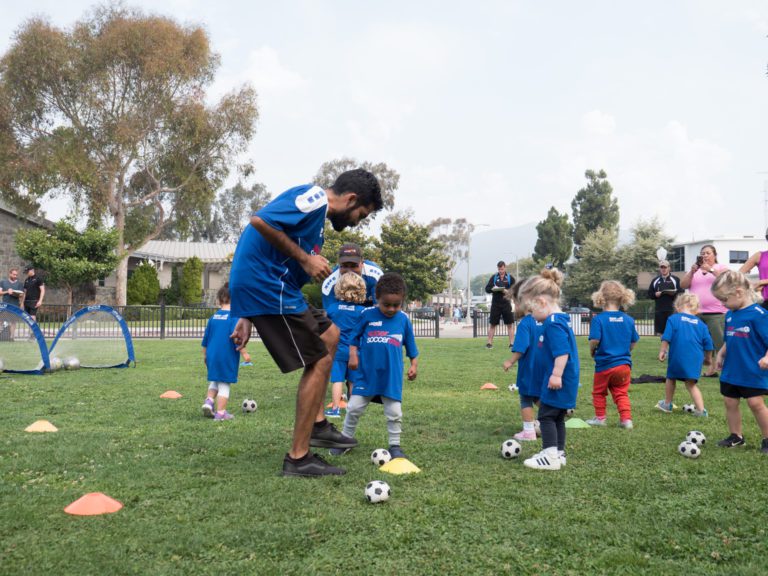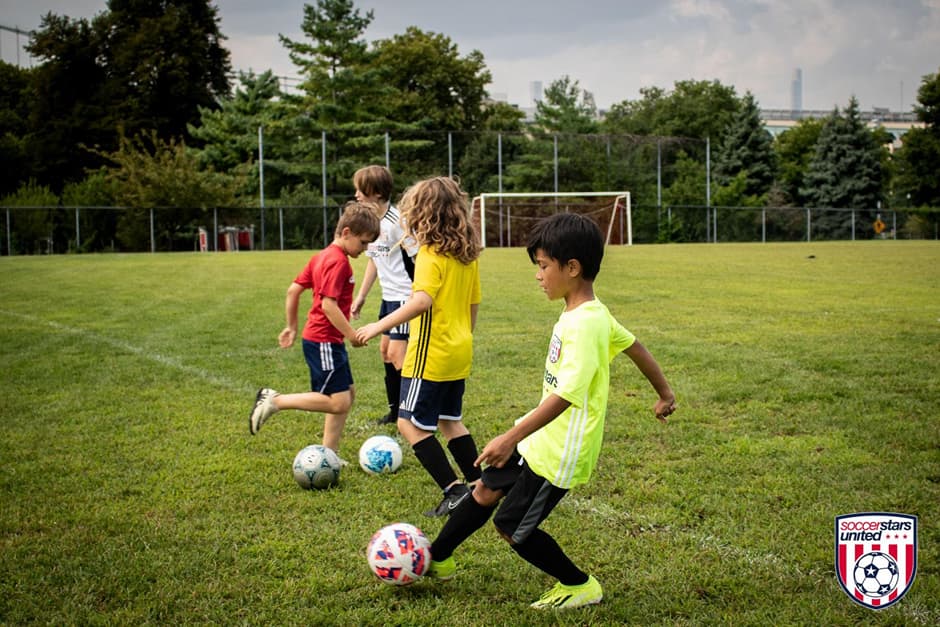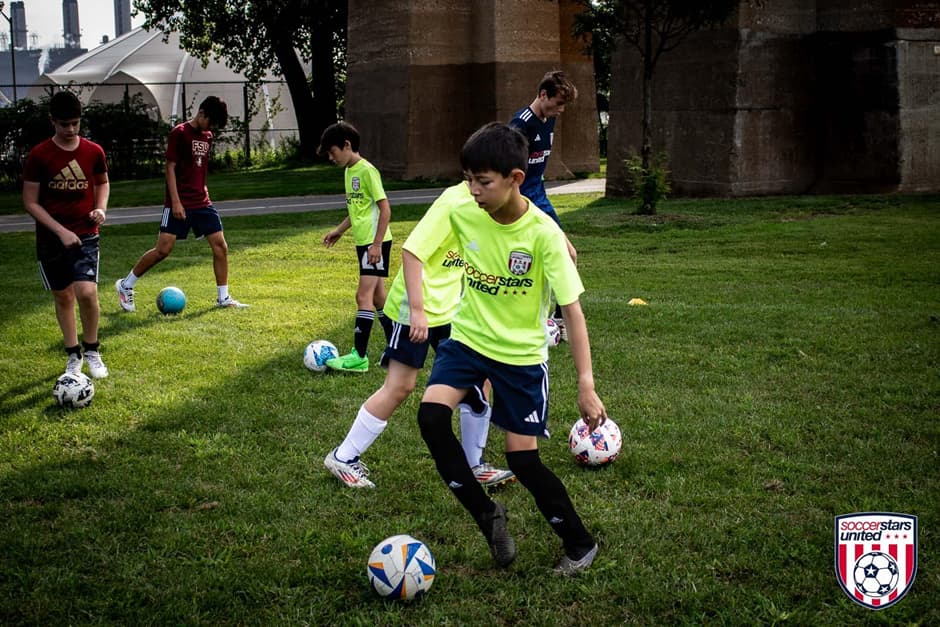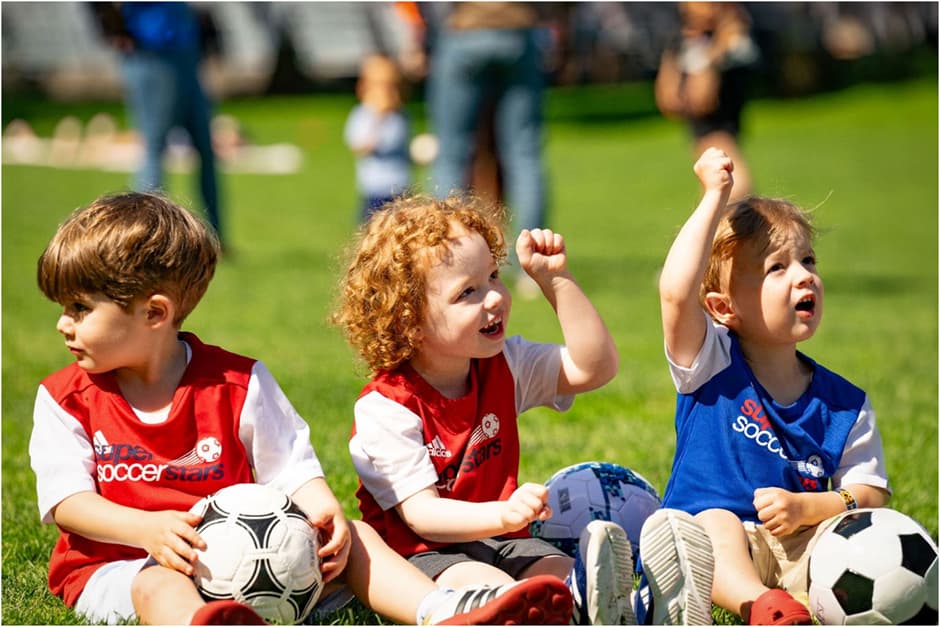
Teaching Teamwork: The Benefits of Cooperation for Childhood Development
Even before they enter kindergarten, many children begin to participate in group activities. Their recognition of their individuality sets the stage for their development of team membership skills. During this transition, and for years to come, children must participate in activities built on collaboration among peers.
This threshold of time has the potential to make or break their social, self-esteem, and leadership skills. Perhaps the biggest obstacle that stands in the way is technology. Excessive screen time has been shown to inhibit children’s early childhood development. Limiting screen time may be a large part of helping children develop these skills, but it will take more than just that.
Ultimately, it’s up to educators, coaches, and parents to guide young learners into developing teamwork skills by teaching and encouraging them to practice these skills.
Benefits of Teamwork for Child Development
Children can benefit greatly from learning how to work in groups or teams. Learning teamwork will help them progress physically, emotionally, socially, and academically for the rest of their lives. This learning not only happens in a classroom setting, but also develops through youth sports, team-building activities, and collaborative games at home.
When children engage in group activities — such as youth sports — built on cooperation, they learn fundamental life skills. They’ll understand how to work with others, communicate effectively, develop leadership skills, be a productive member of society, solve problems in the workplace or at home, achieve goals, and do better in school — among many other benefits.
Teaches Social Skills
Learning how to work in teams helps children develop social skills. Being a good team player requires communicating effectively with others, sharing resources, and collaborating with their peers towards common goals. Teamwork and youth sports teach children how to get along with others with different backgrounds and mindsets.
Children who are taught teamwork skills can be better prepared for the workforce, but they can also follow more positive behavioral patterns in school. These skills even go as far as bestowing kids with the self-esteem and social awareness to navigate difficult scenarios like bullying and peer-pressure scenarios.
Educators, coaches, and parents will need to show children how to work as part of a team and independently. This includes being a role model and celebrating their sports games, academic accomplishments, and other achievements with dignity. This can further demonstrate good social skills to children.
Helps Self-Confidence
One of the most important life skills children can learn while playing in teams is self-confidence. When children experience success from working together, they develop a sense of pride to help them achieve other accomplishments in their lives. This sense of pride also helps reduce anxiety and stress because success breeds confidence, leading to less worrying about imperfection, failure, and mistakes. While children may experience stress in sports, it’s can be good stress which can build confidence when they are successful.
By expressing their ideas and judgments on, seeing their impact on a team, and contributing to a larger purpose, Young children can develop self-assurance. When children feel that their voice matters and see its impact, they’ll experience a sense of worth and feel like an integral part of the group.
Instills Leadership Skills
Self-confidence and other positive qualities such as patience and humility will allow them to become better leaders in the future. When children have the confidence that their ideas are valuable, they will be more apt to lead others or help those who are struggling or discouraged. This can also help other children learn to embrace constructive criticism and turn it into success.
In addition, setting goals and solving problems for themselves and others is one of the most crucial life skills that everyone needs. Helping children this early on by teaching teamwork skills can significantly impact their academic performance, social behavior, and long-term success.
However, kids aren’t born with the ability to lead. Instead, they learn these abilities from the leaders in their own lives. Educators, parents, and coaches must strive to make a healthy connection with their children to set a good example.
Forms Healthy Habits
Teaching teamwork skills to children helps them hone their physical fitness. Team sports, in particular, are one of the best ways for children to have fun while learning more about health and personal wellness.
Youth sports help children develop good habits early on in life. Youth sports can help increase coordination which is very important for sports participation when they get older. It can also help improve heart strength and brain function at a young age, leading to a better quality of life as they get older. As a child gets older, they will need to continually build their stamina and muscle groups while eating the right foods to compete and stay healthy for practice and games.
How To Teach Teamwork Skills
As children participate more in group activities, they will become more knowledgeable about teamwork and what it means to be part of a team. This will give them the ability to know what is expected of them and how to work with others even when things aren’t going exactly right.
It may take time for educators and parents to instill the idea of teamwork into children’s minds, but working with students one-on-one or in small groups will help make this concept stick and possibly become a natural behavior. Parents, coaches, and teachers must provide encouragement and positive feedback throughout lessons, practice, and games so that children can build confidence in their skills.
To reap the full benefits of teamwork, however, it’s important to teach teamwork in the following ways:
Sign Kids up for Organized Activities
The earlier that children start learning teamwork skills, the better. This can be made possible by encouraging them to participate in organized sports such as soccer, baseball, or even group multi-sport classes.
These sports are built on team cooperation and communication. Parents can also sign their children up for music lessons, art classes, or community projects. These activities will provide an excellent support system for children to learn practical skills and develop friendships with like-minded peers
Encourage Inclusion
The most essential part of teamwork is inclusion. Not only is it important to encourage your child to involve themselves in group activities and collaborate with others, but it’s also important to make sure they include others in those same activities. By doing so, all kids can build their self-esteem and other key character-building abilities such as leadership skills, patience, listening skills, and following directions.
When children include others in their activities, they also teach themselves essential teamwork skills such as communication. Through these skills, children involved in the activity will normalize achieving goals as a team and the importance of understanding and accepting others.
Replace Screen Time With Social Bonding
Throughout teamwork exercises, it’s important to establish boundaries. One of the most boundaries is limiting screen time. Excessive screen time can be detrimental to child development, and replacing that time with social interactions will help them learn more about teamwork and being part of a group. This social bonding can occur in school, after-school programs, community outreach programs, or family activities.
Providing kids the opportunity to participate in group activities is one of the best things parents and educators can do to foster healthy development during their childhood years. Putting the technology down, even for a little bit, to engage in social interactions will help your child build vital skills for the future.
Promote Unity and Cooperation at Home
Promoting unity and cooperation at home can be another effective way for parents and children to learn essential values. This will help increase social interaction between family members so that everyone feels included and gets along better.
Encouraging children to participate in group activities such as cleaning, doing the dishes, and board games can assist in fostering healthy relationships with siblings and parents, and children will learn what it means to be a team player.
Reflect and Debrief
After group activities, parents, coaches, and educators should reflect on how they went. Most importantly, check in with children to determine how the activity made them feel. This will allow you to determine if there was a struggle or if something went especially well to provide an opportunity for future improvement.
Ask your children how they felt during certain situations or why they got frustrated during a group activity. You’ll often get the chance to talk through it and help the child succeed in future team-building activities.
The Life-Long Value of Teamwork Skills
Building upon those qualities early on will ensure that these behaviors continue throughout their lives as they mature into teenagers and young adults. Teamwork is an essential life skill that everyone needs no matter where they go in life. Through teamwork skills, children will be more likely to find success in their academic performance, establish healthy habits, and generally live a happy life.




